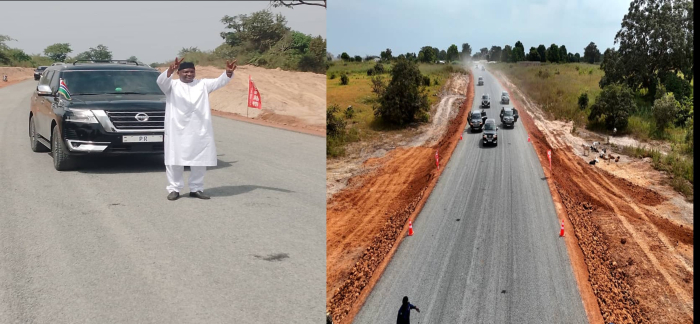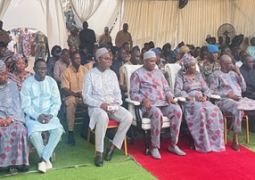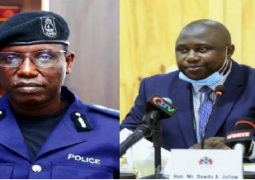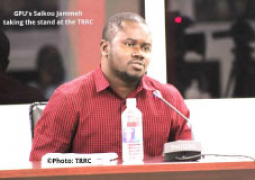
Local residents, who have consistently paid taxes since independence, expressed both joy and relief at finally witnessing such unprecedented development in their history. During President Adama Barrow’s recent site visit, as part of his constitutional tour—the atmosphere was electric. Smiles, cheers, and heartfelt words of gratitude filled the air.
“This is the development we have yearned for over the past years. We now feel that we are part of the country,” said Ousman Bah, a resident of Kabada.
While critics argue that the project is funded by taxpayers’ money, locals counter that they have contributed for decades without seeing tangible benefits. For them, the road is not just asphalt and stone, it is a symbol of inclusion, dignity, and national belonging.
President Barrow, addressing the crowd, reaffirmed his commitment to equitable development across the country, saying: “When it comes to development, no region or community will be left behind. My work will never be centred on politics. I am your servant, and I am ready to bring the much-needed development to your doorsteps. Infrastructure is the cornerstone of nation-building,” he declared.
For the community of Kabada, the completion of this road is more than a construction milestone; rather, it is a turning point in Kabada’s history. Improved connectivity is expected to boost trade, ease access to healthcare and education, and strengthen social ties with other regions.
For communities of the area, this development demonstrates that development is not confined to urban centres but extends to communities that have long felt forgotten.
For Kabada, the road is not just about transport, it is about recognition. It is about finally being seen, heard, and connected to the rest of the nation.
As the asphalt stretches across the once-forgotten land, Kabada’s people can now look forward to a future where isolation is replaced by opportunity, and marginalisation gives way to progress.
Barrow added: "For over five decades, the country had relied on external resources to build roads. He insisted that his administration had broken new ground by mobilising local resources to finance such projects."
“For over 50 years, we have not been using our own resources to build roads. I am the one who initiated this, and I am massively undertaking road projects across the country,” he said.
“Road infrastructure is key. Once that is done, all other facilities will follow—water, electricity, and more,” he explained.
Barrow stressed that such development would have a direct impact on livelihoods, creating jobs and opportunities for Gambians.
“When we build roads, we also create jobs for Gambians. This is development, and it will continue,” he affirmed.
The President revealed that the government is planning an additional 500 kilometres of road projects, on top of the 365 kilometres already underway, valued at nearly 10 billion dalasis.
A Legacy of Development
Concluding his remarks, Barrow expressed his desire to be remembered as a president who laid the foundation for the Gambia’s development and rapidly advanced its socio-economic transformation.
“I want Gambians to remember me not only as a president who led the foundation of development, but as someone who is rapidly changing the socio-economic landscape of this country,” he declared.
Minister of Works, Ebrima Sillah, highlighted the unprecedented development taking place across all sectors of the country, particularly in road infrastructure.
He stated: "When President Barrow’s government came to power, we realised that many communities had been left disconnected due to poor road conditions. As a government that serves the people, President Barrow felt it was crucial to construct these roads, especially in Kabada, which had been without proper road access since independence."





